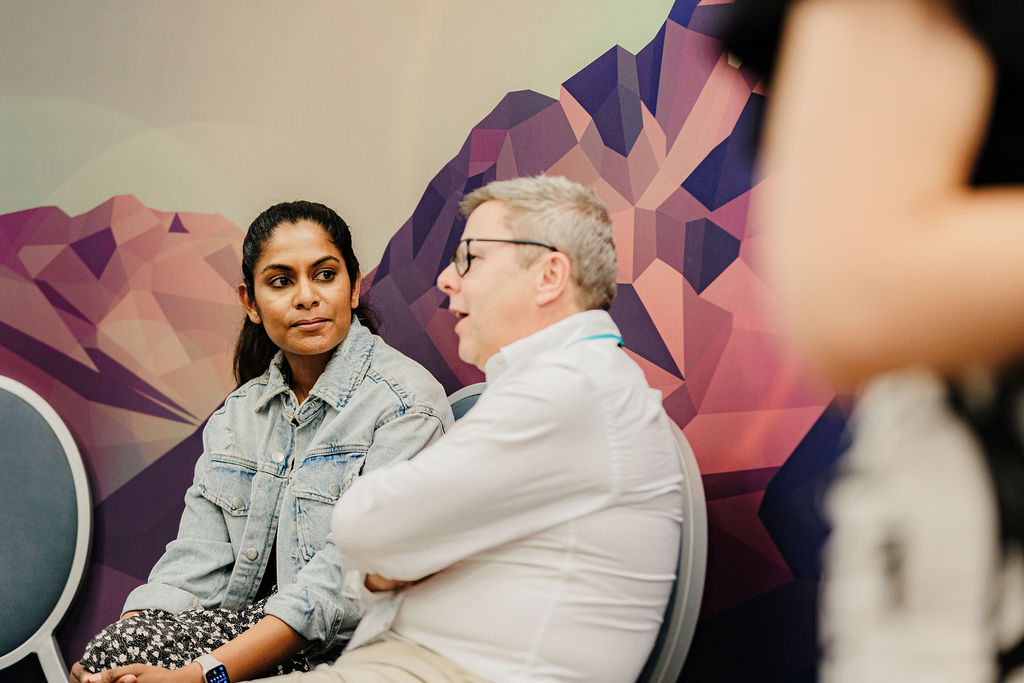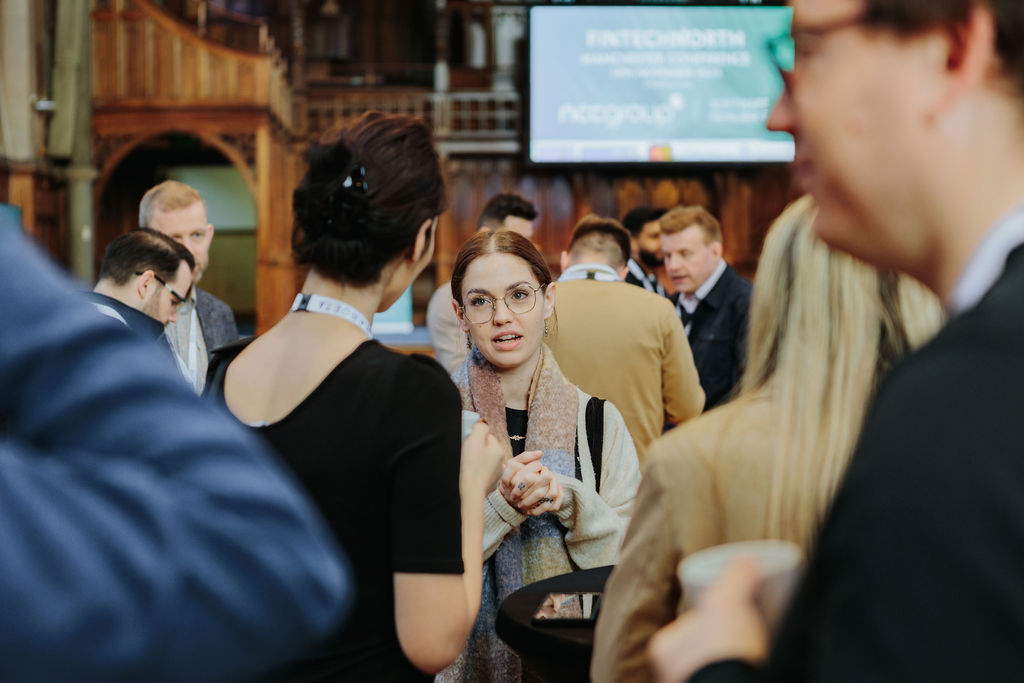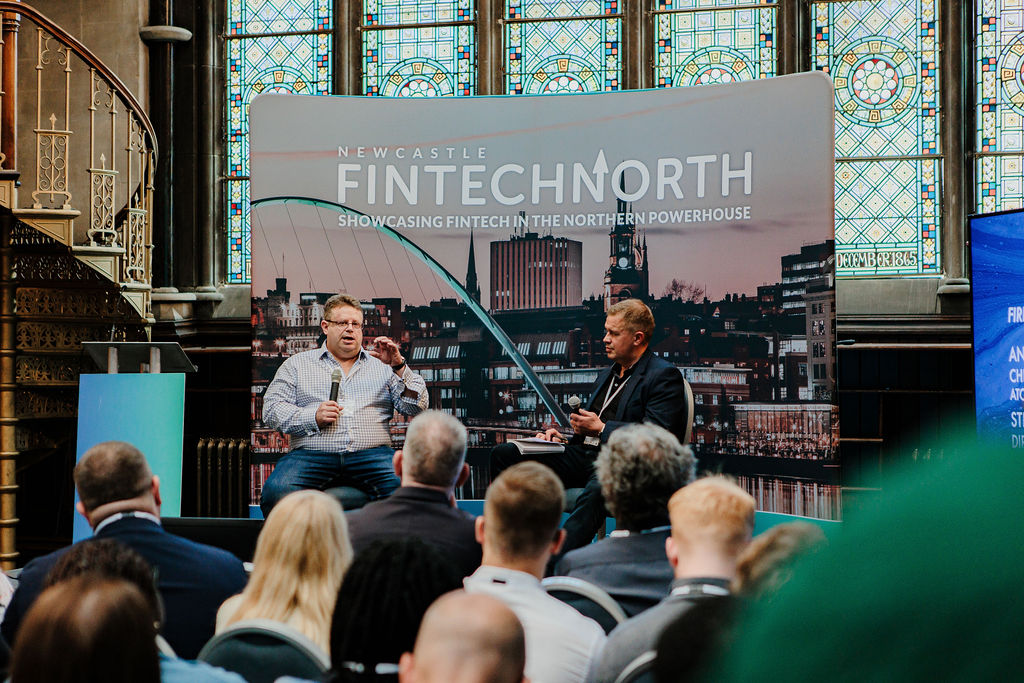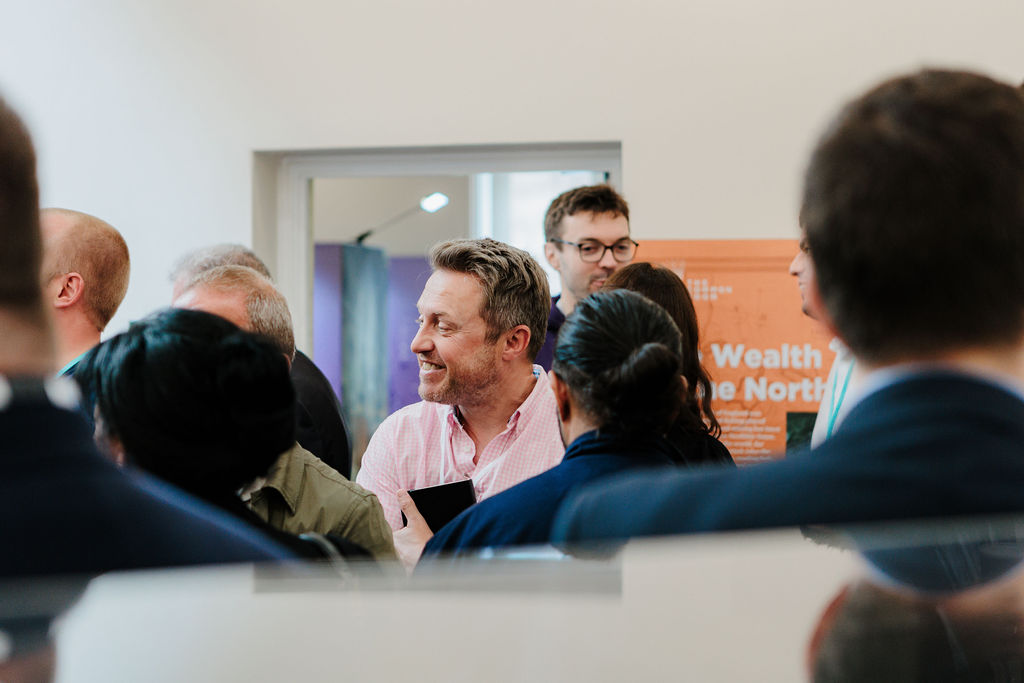FinTech for Good Forum Write-Up
On the 3rd of December, the Northern FinTech community came together in Liverpool for FinTech North’s 2024 finale event, their FinTech for Good Forum, hosted in partnership with DTM Legal and Barclays Eagle Labs.
The event saw a full room with over 40 highly engaged delegates joining and contributing to the interactive session with their questions and own insights
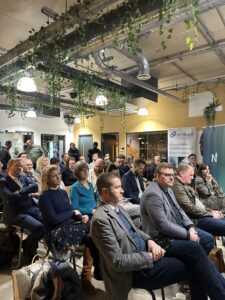
Welcome and Regional Overview
Joe Roche, FinTech North’s General Manager opened the session, warmly welcoming the delegates and sharing a quick overview of Fintech North’s strategy, activity and work in the skills space, relating to the ESG focus of the day.
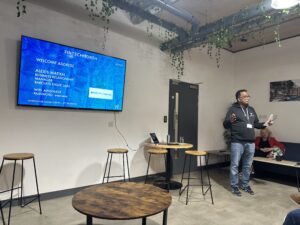
Next, Alex Mathai, Business Relationship Manager at Barclays Eagle Labs provided a welcome on behalf of the organisation, describing the vast suite of support they offer to FinTechs.
In this role, Alex and his team are dedicated to supporting businesses at every stage, from start-up to scale-up and beyond.
Recognising that many businesses may already have a banking partner, Alex highlighted that Barclays is always keen to explore how they can add value. He shared a call to action, encouraging businesses interested in finding out more to connect via LinkedIn and arrange a meeting to discuss their goals.
He noted that even if an individual or business are unsure of what steps to take but they have an innovative idea or a problem statement- he is always happy to interact and ensure suitable support is available through partners such as Fintech North and events they can be a part of.
Next to the stage was Richard Harris, Partner at DTM Legal. He provided an overview of the organisation, before expanding on their role in the Liverpool City Region FinTech Ecosystem and Growth Group, which emerged following Whitecap Consulting’s regional 2023 strategy report, identifying key strengths and calling for increased collaboration.
Insights in Driving FinTech ESG Innovation
The final session was a thought-evoking panel discussion titled: Driving ESG Innovation: Insights from the Liverpool City Region’s Fintech Ecosystem and Beyond, comprising of experts with a wealth of experience in the FinTech for Good space. The panel, expertly facilitated by Samantha Gent, Partner at Local Loop, comprised of the following speakers:
- Tom Woodroof, Co-Founder, Local Loop
- Kate Roberts, Partner and Head of Liverpool, DTM Legal
- Michelle Jones, Founder, Kind Currency
- Peter Cunnane, Director of National and International Initiatives, Innovate Finance
- Alison Lui, Associate Dean Global Engagement, Liverpool John Moores University
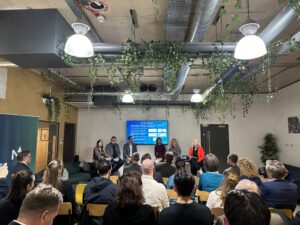
The panel explored the intersection of Fintech and ESG (Environmental, Social, and Governance), delving into how innovative approaches within the sector can foster social value and sustainability. Peter opened by sharing Innovate Finance’s five core objectives, offering insights into the organisation’s commitment to driving financial inclusion and FinTech innovation. Click here to read about the the UK Impact of FinTech Report 2024, which Innovate Finance were involved in the publication of.
Kate emphasised the importance of collaboration in the “S” of ESG, underscoring the role of financial inclusion, financial education, and empowering younger generations to seize the opportunities available in the Liverpool City Region. She highlighted organisations like Financielle and Medicash, which focus on improving financial literacy and empowerment, employee wellbeing, and mental health resilience.
Tom brought a local perspective, sharing how Local Loop is addressing economic silos by activating invoice data from businesses in the region. By creating tools that enable local trade to scale affordably, the company is enhancing community wealth and shortening supply chains, thereby fostering resilience and sustainability.
Alison contributed her expertise in regulation, FinTech, and AI, stressing the importance of financial and digital literacy. She shared insights from her international research on transitioning informal economies to digital platforms, including her work with female street traders in Nigeria to increase their financial confidence through workshops and access to smartphones. Alison also highlighted the importance of innovative teaching methods and partnerships in equipping students with future-ready skills.
Michelle focused on the sector’s ability to deliver tangible social value. She explained how Kind Currency bridges the gap between ESG commitments and real social value needs, by enabling organisations to transparently take tangible action and evidence genuine impact.Michelle also reflected on the financial sector’s power to drive societal change, referencing the Purple Pound—a market worth billions representing the spending power of people with disabilities—and initiatives like Project Nemo, which promote financial inclusion.
The panel also addressed how businesses can embed ESG principles into their strategies. Kate observed that many small businesses already practice ESG principles without realising it and encouraged them to leverage networks to support entrepreneurs and startups.
Michelle noted that larger organisations could learn from smaller businesses’ grassroots adaptability, community-driven approaches, and ability to pivot to meet immediate needs.
Tom discussed the importance of measuring tangible ESG impacts and highlighted the potential for FinTech organisations to use data and metrics to quantify success, citing ttols like Carbon Happy World’s.
Accessibility and inclusivity emerged as key themes in the discussion. Alison emphasised the importance of region-specific research to address economic challenges, while Peter stressed the role of academic and industry collaborations in making FinTech accessible to underrepresented groups. The panel collectively acknowledged the barriers that some individuals face, such as lack of access to technology or connectivity, and underscored the importance of addressing these gaps.
Looking ahead, the panel identified several exciting opportunities over the next five to ten years. Kate emphasised the value of accurate and transparent data for better decision-making. Alison pointed to the need for responsible and trustworthy use of AI in the tech sector, a growing area with significant societal implications. Michelle reflected on the priorities of Gen Z, noting their preference for social value over pay and the potential for cross-sector collaboration to drive meaningful change. Alison concluded by highlighting the importance of fostering aspirations, creating career pathways, and embracing innovative teaching approaches, such as interdisciplinary clinics and industry supervision, to attract and retain talent in the region.
The session concluded with a shared understanding of the importance of uniting expertise, resources, and a commitment to ESG principles to drive sustainable innovation. The Liverpool City Region’s FinTech ecosystem, with its wealth of talent and collaborative spirit, is well-positioned to lead in this space.
As the content drew to a close, delegates came together for a vibrant networking session to discuss the insights shared and celebrate FinTech North’s final event of 2024.
We’d like to once again share a thank you to our event partners, DTM Legal and Barclays Eagle Labs, our brilliant speakers, and to everyone who joined on the day.
